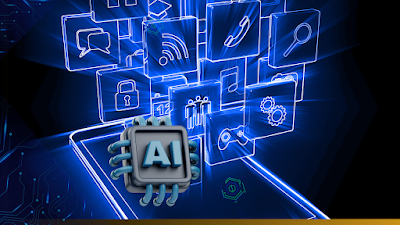AI in 2030: 10 Revolutionary Predictions That Will
Change the Future
AI in 2030: 10 Revolutionary Predictions That Will
Change the Future
Artificial Intelligence (AI) is no longer a distant dream—it’s already reshaping industries like healthcare, image generation, and natural language processing. But what will AI look like in 2030? Here are 10 game-changing predictions for AI that could transform our world in ways we can hardly imagine.
By 2030, artificial intelligence (AI) will have advanced far
beyond what we know today, transforming nearly every aspect of our lives. From
human-like thinking machines to groundbreaking medical breakthroughs, AI is set
to revolutionize industries and daily routines in ways we can hardly imagine. In
this blog, we’ll explore 10 mind-blowing predictions for AI in 2030—game-changing
developments that you simply can't afford to miss. Get ready for a glimpse into
the future where AI reshapes how we live, work, and interact with the world
around us!
1. Humanlike AI: Machines Thinking Like Us
By 2030, AI could reach intelligence levels comparable to
humans. Imagine machines not only making decisions but also thinking
creatively, problem-solving, and adapting like people do. This breakthrough
will revolutionize sectors such as healthcare, finance, and manufacturing. In
healthcare, for instance, AI will diagnose diseases with the accuracy of
seasoned doctors, while in finance, it will predict market trends and optimize
investment strategies with unprecedented precision.
2. Enhanced Human-AI Synergy: A New Type of Teamwork
The future isn’t about machines replacing humans, but
rather, working alongside us. By 2030, AI will evolve from being a mere tool to
becoming our personal assistants, teachers, and even friends. Whether it’s
diagnosing a disease faster or providing personalized learning in classrooms,
AI will become an integral part of our daily lives, improving productivity and
creativity.
3. The Rise of the Metaverse: A New Reality
By 2030, the metaverse will no longer be a sci-fi concept. This
virtual universe will allow us to interact in immersive digital environments,
attend virtual events, and work in digital offices. AI will be key in creating
these hyper-realistic spaces, offering personalized experiences, and even
creating responsive virtual characters to interact with.
4. AI in Every Device: Smarter Homes, Smarter Lives
Your coffee machine will know when to start brewing, and
your thermostat will adjust based on your daily habits. By 2030, AI will be
embedded in nearly every device—from home appliances to wearables, and even
drones. This integration will make life more convenient, connected, and
efficient.
5. Autonomous Vehicles: Redefining Transportation
Fully self-driving cars will likely be the norm by 2030. Companies
like Tesla are already leading the charge toward autonomous vehicles, which
will reduce traffic, cut emissions, and even change the way cities are designed.
Autonomous delivery drones and robots will also streamline last-mile
deliveries, making them faster and more efficient.
6. Job Displacement: The AI Job Revolution
While AI will create incredible opportunities, it will also
cause massive job displacement. According to predictions, over a billion jobs
could be affected by 2030, as machines take over roles like driving, operating
machinery, and even legal work. To cope, workers will need to adapt, learning
new skills and retraining for the future workforce.
7. AI-Driven Healthcare: Personalized and Precise
AI will revolutionize healthcare by offering personalized
treatments, early disease detection, and even custom medications based on an
individual’s genetic makeup. Medical AI systems will identify patterns in
medical images, helping doctors make more accurate diagnoses and speeding up
drug discovery processes.
8. Biometric Technology: Beyond Passwords
Biometric systems like facial recognition, iris scans, and
fingerprint IDs will become the standard for authentication by 2030. Biometric
wearables will also monitor health data, giving real-time feedback to users. Privacy
concerns will be addressed with advanced encryption and secure data storage
methods, ensuring your information stays safe.
9. Deep Fakes: A Double-Edged Sword
Deep fake technology will be even more advanced by 2030,
making it both easier to create realistic content and harder to spot fake
information. This will present a significant challenge in terms of online trust
and security. Governments and tech companies will need to develop robust ways
to detect and regulate deep fakes.
10. Emotion-Recognizing AI: Machines That Understand Feelings
By 2030, AI systems will be capable of reading human
emotions through facial expressions, voice tone, and body language. This will
have profound implications for customer service, healthcare, and education,
where AI can respond empathetically and in real-time to human needs, creating a
more human-centered interaction with technology.
Conclusion:
The next decade is set to be an exciting and transformative
time for AI. From human-like machines to emotion-recognizing systems, AI in 2030
will redefine how we live, work, and interact with the world around us. As we
stand on the brink of this technological revolution, the possibilities are both
thrilling and awe-inspiring.
---
Keywords: AI in 2030, artificial intelligence
predictions, humanlike AI, metaverse 2030, autonomous vehicles, job
displacement, personalized healthcare, biometric technology, deep fake
technology, emotion-recognition AI

0 Comments